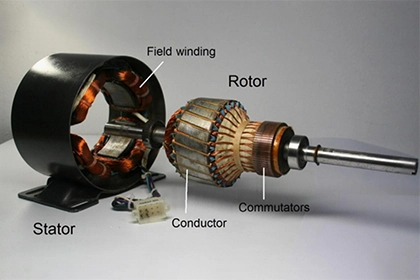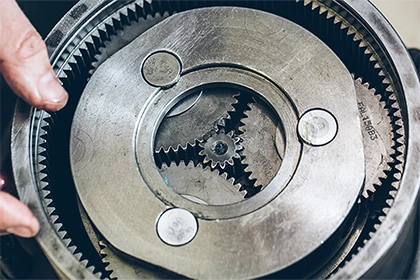
What Causes an AC Motor to Not Start?
In this comprehensive guide, we will explore the various factors that can prevent an AC motor from starting with Lunyee.
Are you facing issues with your AC motor not starting? In this comprehensive guide, we will explore the various factors that can prevent an AC motor from starting with Lunyee. By identifying these causes, you'll be equipped with the knowledge to troubleshoot and resolve the issue efficiently. Let's dive in and uncover the reasons behind a non-starting AC motor!
Illustrative Table:
| Possible Causes | Solutions |
|---|---|
| Motor Overload | Check workload and adjust accordingly |
| Faulty Starting Capacitor | Replace with a compatible capacitor |
| Faulty Centrifugal Switch | Consult a professional for repair or replacement |
| Power Supply Issues | Ensure stable power supply meeting requirements |
| Faulty Motor Windings | Inspect for damage and consider professional repair or replacement |
| Mechanical Obstructions | Remove obstructions or fix mechanical faults |
| Control Circuit Issues | Inspect and repair control circuit components |
Please note that this table serves as a visual representation of possible causes and solutions, and it's important to refer to Lunyee's specific recommendations for your motor model.
-
Motor Overload:
One of the most common causes of an AC motor failing to start is motor overload. This occurs when the motor draws excessive current or is subjected to a power level beyond its capacity. Overloading can result from an increased workload or if the motor is operating outside its specified torque range. To prevent overload, ensure that the motor's power demands align with the electrical system's capabilities.
-
Faulty Starting Capacitor:
AC motors often rely on starting capacitors to initiate the rotational motion. If the starting capacitor is defective or worn out, it can lead to motor starting issues. Inspect the capacitor for bulges, leaks, or signs of damage. If found problematic, replace it promptly with a suitable capacitor recommended by Lunyee for your specific motor model.
-
Faulty Centrifugal Switch:
AC motors equipped with centrifugal switches can experience starting problems if the switch malfunctions. The centrifugal switch is responsible for disconnecting the starting winding once the motor reaches a certain speed. If the switch fails to disengage, it can prevent the motor from transitioning from the startup phase to continuous operation. In such cases, professional repair or replacement may be required.
-
Power Supply Issues:
Inadequate or unstable power supply can hinder an AC motor's ability to start. Voltage fluctuations, voltage imbalances, or power dips can disrupt the motor's startup process. Verify that the power supply meets the motor's voltage and frequency requirements specified by Lunyee. If power quality is a concern, consider installing a voltage stabilizer or surge protector to safeguard the motor.
-
Faulty Motor Windings:
Defective motor windings can also lead to a non-starting AC motor. Winding failures can be caused by insulation breakdown, worn-out connections, or internal faults. Conduct a thorough inspection of the windings for signs of damage, such as burnt or discolored areas. Lunyee's motors are designed with high-quality winding insulation, reducing the chances of such failures.
-
Mechanical Obstructions:
Physical obstructions within the motor or its connected components can prevent proper motor rotation. Check for any foreign objects, debris, or mechanical faults that could impede the motor's movement. Lubricate the motor bearings as recommended by Lunyee to ensure smooth operation.
-
Control Circuit Issues:
Faulty control circuits, such as malfunctioning relays or switches, can disrupt the motor's starting sequence. Inspect the control circuitry and perform necessary tests to identify and rectify any issues. Ensure that all control connections are secure and properly wired according to Lunyee's specific recommendations.
Conclusion:
Troubleshooting a non-starting AC motor can be challenging without knowledge of the underlying causes. By understanding the common issues discussed in this guide, you can effectively diagnose and resolve the problem. Remember to consider factors like motor overload, faulty capacitors, centrifugal switch failures, power supply issues, faulty windings, mechanical obstructions, and control circuit problems. Lunyee's reliable motors, coupled with their comprehensive support, ensure a seamless experience in resolving AC motor starting issues.



Leave a Comment